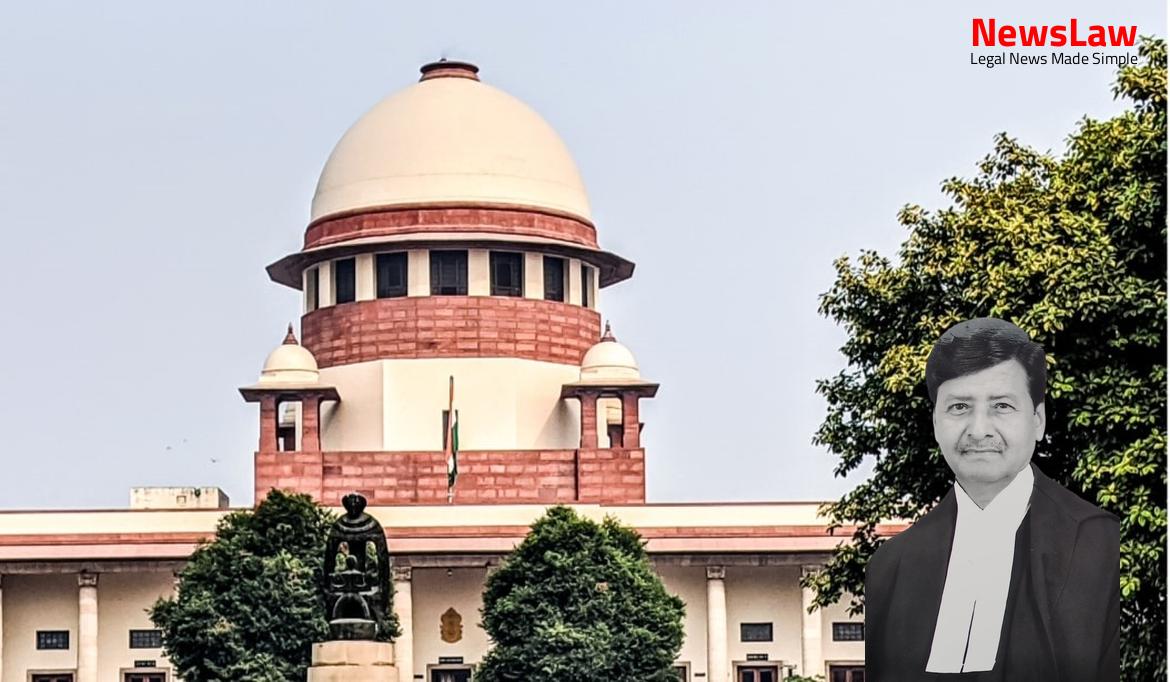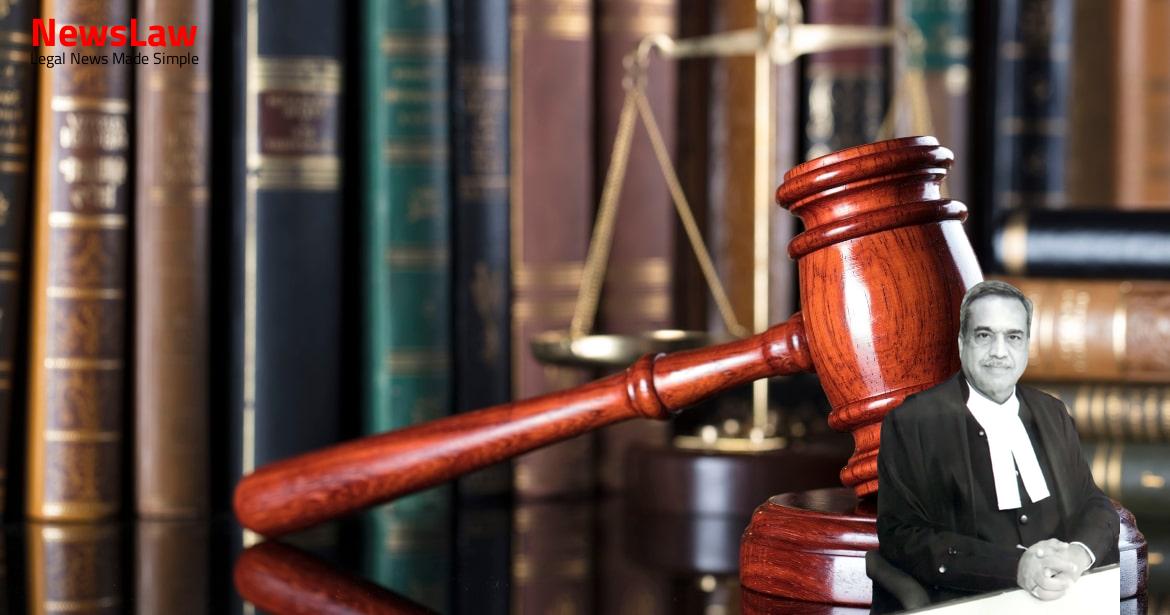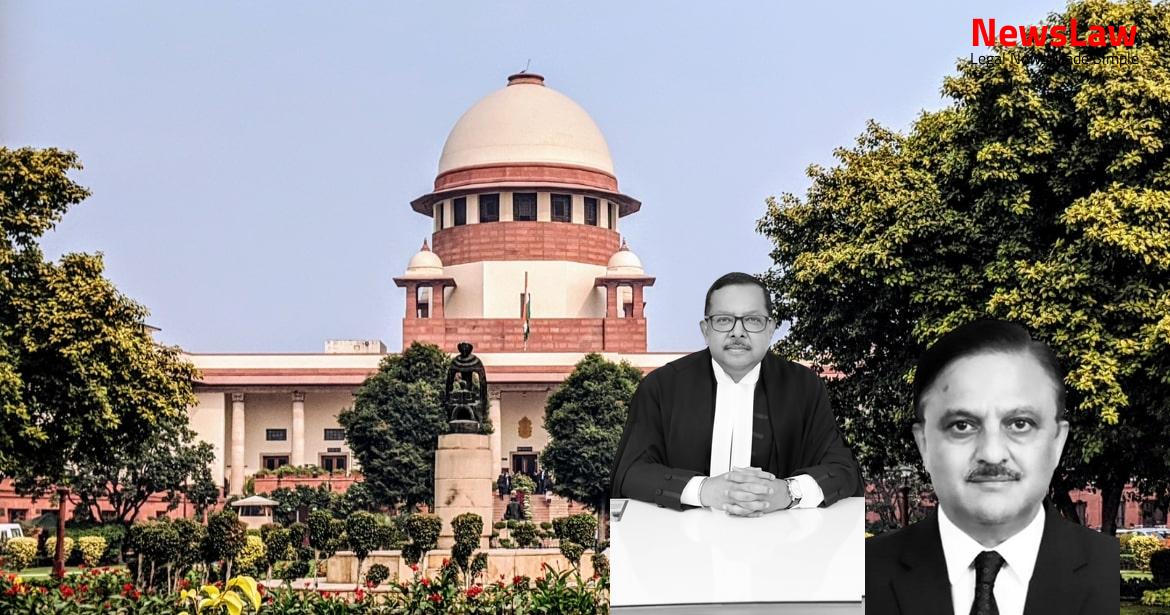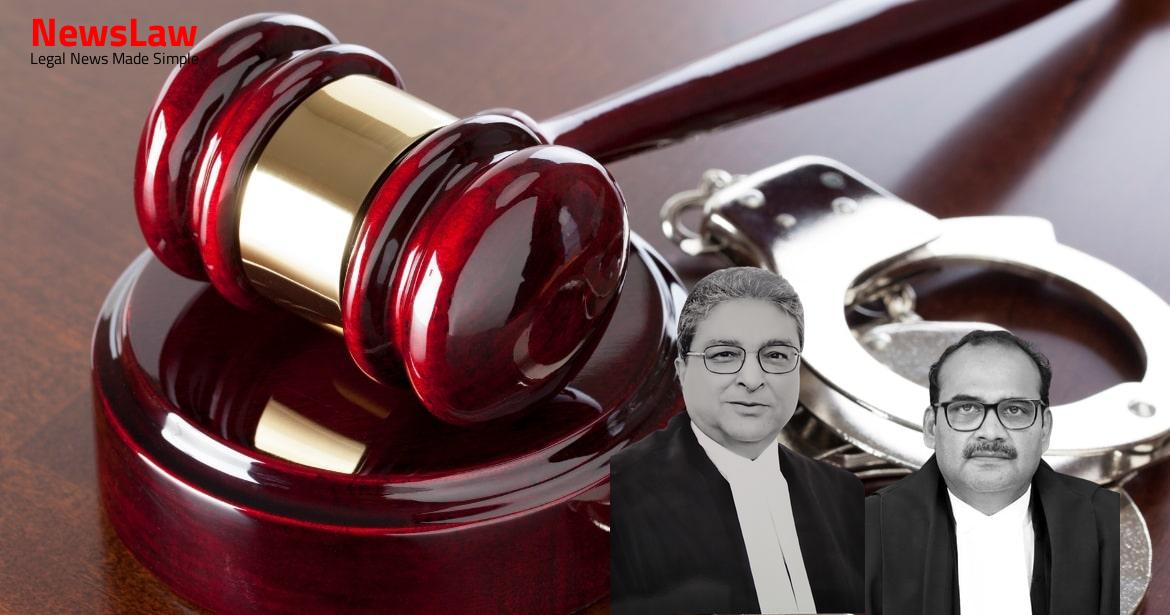In the case of Fourth Respondent v. Appellant, the Supreme Court of India addressed the issue of framing charges and trial proceedings. The case involves allegations of harassment and demands for money by the fourth respondent against the appellant. The court evaluated the procedural irregularities and the addition of charges under Sections 406 and 420 of the IPC. Read on to know more about this significant judgement.
Facts
- The FIR recites that the appellant got married to the daughter of the fourth respondent in 2003.
- A First Information Report was lodged by the fourth respondent on 10 March 2011 alleging harassment by the appellant and his family for money and transfer of property.
- A charge-sheet was filed against the appellant and his parents under Section 498A of the IPC along with Sections 3 and 4 of the Dowry Prohibition Act 1961.
- An additional charge-sheet was filed on 12 April 2013 implicating the appellant for crimes under Sections 406 and 420 of the IPC, based on witness statements regarding a demand of Rs 5,00,000 for securing a job for the complainant’s daughter as a doctor in the UK.
- The trial court reserved judgment on 13 February 2017 after recording evidence and concluding arguments.
- An application for framing charges under Sections 406 and 420 was allowed by the trial court on 21 February 2017.
- The trial court recognized that it had only reviewed the original charge-sheet dated 30 June 2012 and not the additional charge-sheet dated 12 April 2013.
- The High Court, on 6 March 2019, allowed the revision petition and overturned the trial court’s order citing procedural irregularities and lack of reasoning in the trial court’s decision not to frame additional charges.
- On 1 June 2017, the High Court initially set aside the trial court’s order of framing additional charges due to procedural irregularities but left the possibility open for the trial court to do so if necessary after a proper hearing and recalling of witnesses.
- The trial court, on 11 October 2017, rejected the application for framing additional charges citing lack of evidence for offences under Sections 406 and 420 IPC.
- A revision petition was filed by the fourth respondent against the trial court’s order, which led to the High Court directing the framing of additional charges under Sections 406 and 420 after evaluating witness statements and considering the additional charge-sheet filed on 12 April 2013.
- Ultimately, the trial court only framed charges against the appellant for offences mentioned in the original charge-sheet dated 30 June 2012, under Section 498A of the IPC along with Sections 3 and 4 of the Dowry Prohibition Act.
Issue
- The question of paying Rs 5,00,000/- to the appellant for securing a job does not arise.
- PW 6, a friend of the fourth respondent for the past twenty-five years, is considered an interested witness.
- PW 5, the brother-in-law of the fourth respondent, is also viewed as an interested witness.
- During cross-examination, PW 5 was unable to provide the date, month, and year on which the alleged amount was paid to the fourth respondent for payment to the appellant.
Also Read: CRPF Act: Validity of Rule 27 for Compulsory Retirement – Case of Head Constable vs. CRPF
Arguments
- An application for alteration of charge under Section 216 was intentionally filed on the date of the pronouncement of judgment to delay the proceedings.
- The FIR filed by the fourth respondent does not mention any demand or payment of Rs 5,00,000/- to the appellant for securing a job for the complainant’s daughter, only alleging offences under Section 498A of the IPC and Section 4 of the Dowry Prohibition Act.
- The fourth respondent and his daughter, both being doctors, are aware that securing a doctor’s job in the United Kingdom requires clearing an entrance test.
- Fourth respondent did not intend to delay the pronouncement of the decision.
Also Read: DAMEPL vs. DMRC: Curative Petition and Arbitral Award Restoration
Analysis
- The court is not required to analyze the credibility or evidentiary value of the materials before it.
- The court has the authority under Section 216 to alter or add charges judiciously without causing prejudice to the accused.
- The High Court’s evaluation of material for additional charges was deemed correct and in line with precedent.
- The intention of the accused at the time of inducement can be judged by subsequent conduct.
- The court should not delve deep into probative value during the framing of charges.
- The court needs to have a presumption that the offense has been committed when framing charges.
- The court’s power to alter or add charges is constrained only by the prejudice likely to be caused to the accused.
- The court may proceed with trial even after alteration or addition of charges if it does not prejudice the accused or the prosecution.
- The provision in Section 216 allows for alterations or additions based on trial proceedings.
- Recalling of witnesses is permitted under Section 217 when charges are altered or added after the trial has commenced.
- An application was filed for framing an additional charge under Section 406 of the IPC against the husband and the mother-in-law in a case involving offences under Sections 498A and 323 of the IPC.
- The court has the power to alter or add charges at any time before judgment is pronounced, even after completion of evidence, arguments, and reserving of judgment.
- In the case of Hridaya Ranjan Prasad Verma v State of Bihar, it was held that to hold a person guilty of cheating, fraudulent or dishonest intention at the time of making the promise must be shown.
- In the case of CBI v Karimullah Osan Khan, an application was filed during the course of trial for addition of charges under various provisions of the IPC, the Explosives Act 1884, and the Terrorist and Disruptive Activities (Prevention) Act 1987.
- In Jasvinder Saini v State (Govt of NCT of Delhi), it was questioned whether the Trial Court was justified in adding a charge under Section 302 of the IPC against the accused persons originally charged under Section 304B of the IPC.
- The High Court found that the ingredients of the offences under Sections 406 and 420 of the IPC are met.
- In order to frame a charge, the court must determine if there is enough material for a trial to begin.
- The High Court listed 15 reasons for adding the charge, supporting the need for trial commencement.
- Based on these reasons, the court found no grounds to interfere with the impugned order.
Decision
- The appeal is dismissed.
- Any pending application(s) are disposed of.
- The trial proceedings before the Additional Junior Civil Judge, Sattenapalli will continue.
Case Title: DR.NALLAPAREDDY SRIDHAR REDDY Vs. THE STATE OF ANDHRA PRADESH (2020 INSC 68)
Case Number: Crl.A. No.-001934-001934 / 2019



